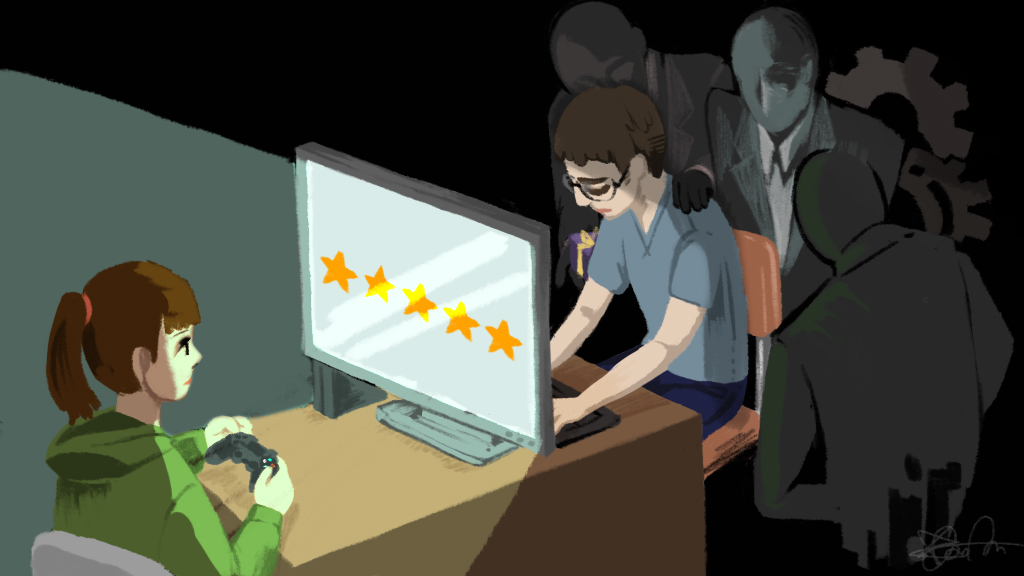Who Do Game Journalists Really Work For?
by Tim Henry | published Sep. 17th, 2014
This past month, the social media giant Twitter exploded with #Gamergate, an ongoing battle between gamers and game journalists. The catalyst of this hatred between critics and consumers didn’t actually involve gamers at all, but rather the lack of ethics in game journalism.
The Gamergate incident isn’t the only example of game journalists being extremely friendly with developers and marketing personnel. In 2012, another controversy known as “Dorito-gate” sparked an outcry from both journalists and gamers. The controversy stemmed from two incidents, the first involving Geoff Keighley, the host of Game Trailers TV (GTTV). Keighley was being interviewed about Halo 4 while surrounded by Doritos and Mountain Dew, and both brands were running a promotional campaign that offered in game rewards for "Halo 4." This brought implications that Doritos and Mountain Dew had paid for their inclusion in the interview, something that the community at large frowned upon.
The second part of the Dorito-gate scandal came out of the GMAs (Games Media Awards) in the U.K. The awards show for games journalists featured awards that were voted on, not by a committee of neutral journalists, but rather by PR representatives. In addition, the journalists were encouraged to tweet hashtags for specific video games in order to win a PS3. Rob Florence wrote a column about this event in the magazine Eurogamer, but a number of lines were removed from the column, specifically those quoting tweets made by journalists at the event. The column lead people to investigate further and find one journalist in particular, Lauren Wainwright, who had reviewed a number of games by Square-Enix despite having on her resume that she had worked on some of the games she reviewed.
The practices of many game journalists have been under constant scrutiny, and for good reason. The professional realm of game journalism has become too muddied with promotional giveaways and conflicting interests. People no longer know if they are seeing an honest opinion in reviews, and as a result are looking for other means to get their information. This is something that professional game journalists should take a hint from: many people opt to look at YouTube for their information on what games to play. The reviews posted on YouTube tend to be by people who are much more distant from the developers, and are not afraid to be bluntly honest about a game's shortcomings. The entire field of game journalism needs to have a stronger code of ethics, and return to what is really important: the love of gaming. 



